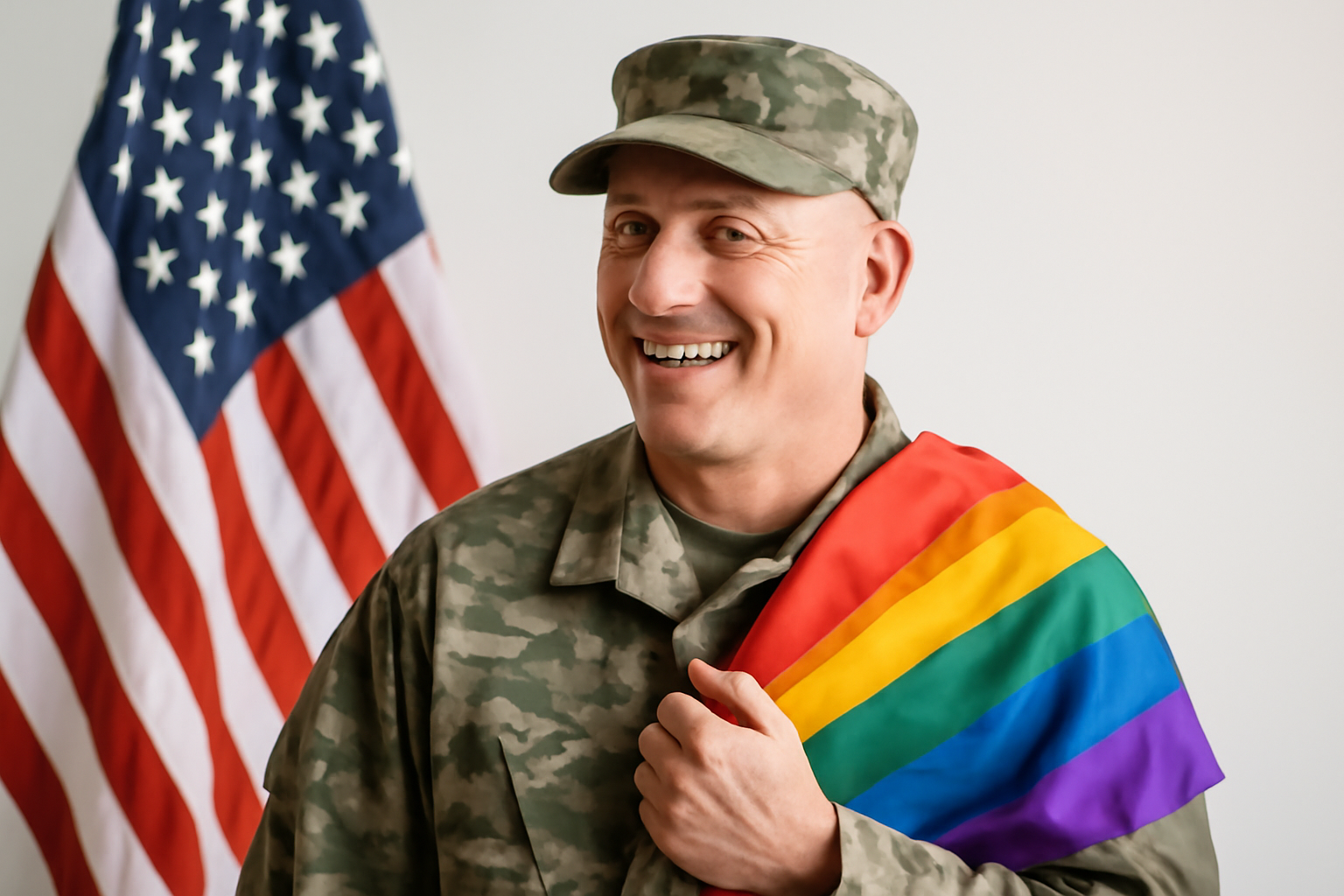
The Pentagon has announced a landmark resolution involving over 30,000 LGBTQ+ veterans who were discharged under the policy known as "Don’t Ask, Don’t Tell". This monumental agreement now enables these veterans to amend their military records with greater ease.
Implemented in 1994 under President Bill Clinton, "Don’t Ask, Don’t Tell" required LGBTQ+ individuals to conceal their sexual orientation in order to serve in the military. The policy led to widespread discrimination, forcing many service members out of the military due to their actual or perceived sexuality. Those discharged under this policy often received dishonorable discharges, stripping them of years of benefits and recognition.
In 2023, a class action lawsuit, Farrell v. the US Department of Defense, was brought forward in the US District Court for the Northern District of California. The lawsuit was filed on behalf of numerous LGBTQ+ veterans who claimed the Department of Defense failed to update their discharge status to honorable following the repeal of "Don’t Ask, Don’t Tell" in 2011.
The plaintiffs argued that their discharges were unconstitutional and unjustly deprived them of full veterans' benefits. The settlement, announced on January 6th, allows those discharged under "Don’t Ask, Don’t Tell" and similar policies to update their records without undergoing a lengthy legal battle. This process aims to remove all references to their sexuality from their military documentation.
Impact of Dishonorable Discharges
Dishonorable discharges have profound implications, affecting veterans' access to benefits. An honorable discharge indicates that a service member performed their duties diligently and lawfully, entitling them to benefits such as home-loan assistance, medical care, and retirement pay. Conversely, a dishonorable discharge can bar access to veteran benefits and certain civilian government benefits, including unemployment and federal student loans.
Jocelyn Larkin, a lawyer representing the class-action group, stated that prior to the settlement, the process of updating records was daunting for many veterans. "It's crucial that the ongoing impact of this discriminatory policy is finally addressed," Larkin remarked. "Repealing 'Don’t Ask Don’t Tell' was insufficient as veterans continued to carry the stigma of being gay in the military. This initiative is essential in affirming that their service was honorable."
Voices of Veterans
Navy veteran Sherrill Farrell, one of the plaintiffs, shared her personal journey. Coming from a line of military service, Farrell enlisted in 1985 with pride. "When I was discharged due to my sexual orientation," Farrell explained, "I felt as though my country was invalidating my service, deeming me 'less than' because of whom I loved. Today, I take pride in having served my country by advocating for veterans like myself and ensuring our honor is acknowledged."
Lilly Steffanides, another navy veteran, expressed their experience of joining the military in 1988 with a resolve to serve honorably. "The discriminatory policies of the era led to my unjust discharge, robbing me of dignity and the benefits I had rightfully earned," Steffanides shared. "This settlement is not just about amending records; it is about restoring the honor and pride that LGBTQ+ veterans deserve."
Julianne Sohn added, "As a marine, I was proud to uphold the values of honor, courage, and commitment alongside my fellow service members. However, the pain and injustice of being discharged under discriminatory policies like 'Don’t Ask, Don’t Tell' persisted for years. This settlement signifies a recognition of these wrongs and aims to prevent such prejudice from recurring."
Looking Ahead
The settlement awaits approval from a federal judge, with the hearing scheduled before Magistrate Judge Joseph Spero next month. It is estimated that approximately 14,000 individuals were discharged under "Don’t Ask, Don’t Tell", with over 20,000 individuals removed from the military since 1980 due to their actual or perceived sexual orientation.
This agreement represents a significant step toward justice for LGBTQ+ veterans, acknowledging their service and paving the way for a more inclusive military environment. Share your thoughts and join the discussion below, remembering to keep the conversation respectful.
Related Posts
Triumphant Trans Woman Wins Legal Battle and Inspires Others to Stand Up for Their Rights
Breaking new ground: a landmark victory in transgender rights After battling in courtrooms and enduring endless challenges, Diana Portillo, a transgender woman, has secured a monumental victory in her decade-long fight against workplace discrimination. The result? Nearly $1 million awarded in a historic settlement. But this isn't just a win on paper—it represents a powerful precedent in combati [...]
Pride Month in Latin America: Protests and Demands for Equality
**Celebrating Pride and advocating LGBTQ+ rights in Latin America** Pride Month in Latin America was a lively mix where celebration met activism. Communities united, not just throwing a party but making a stand—demanding equality and pushing governments toward better protection and rights recognition. Throughout Latin America, pride events erupted in marches and cultural displays, each with a c [...]
Transgender Erasure Actions Implemented by National Park Service
```html Trump administration's impact on national park service and transgender recognition The Trump administration made notable moves in undermining transgender representation, which included directing agencies like National Park Service not include "T" and "Q" when they refered “LGBTQ” in any official communication. This move seems part a broader plan by this administration aimed at reducin [...]